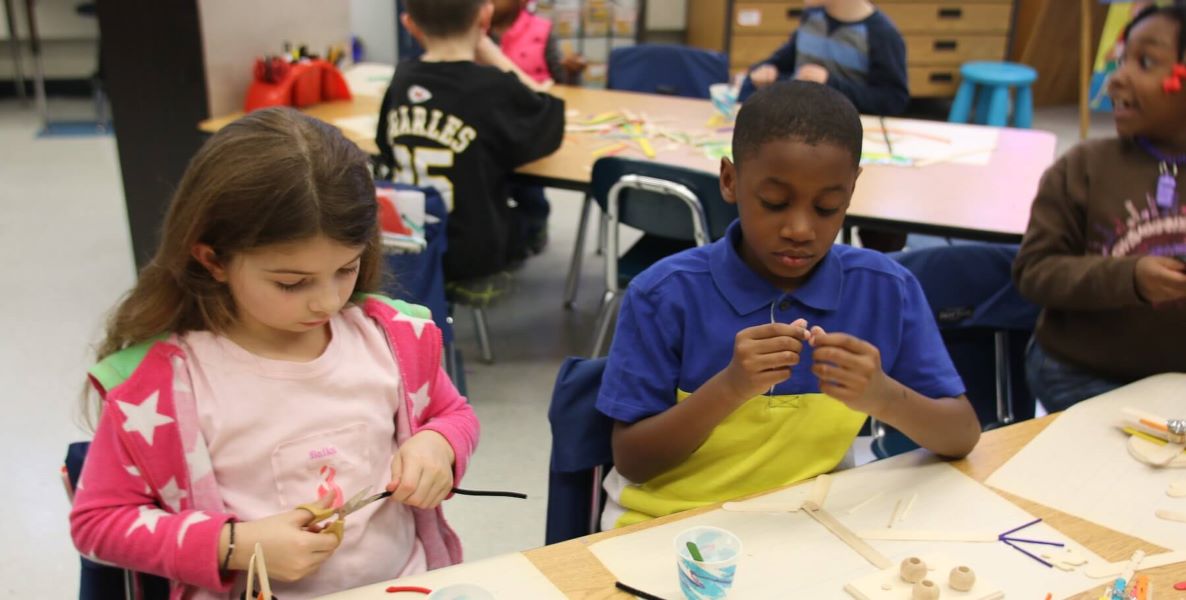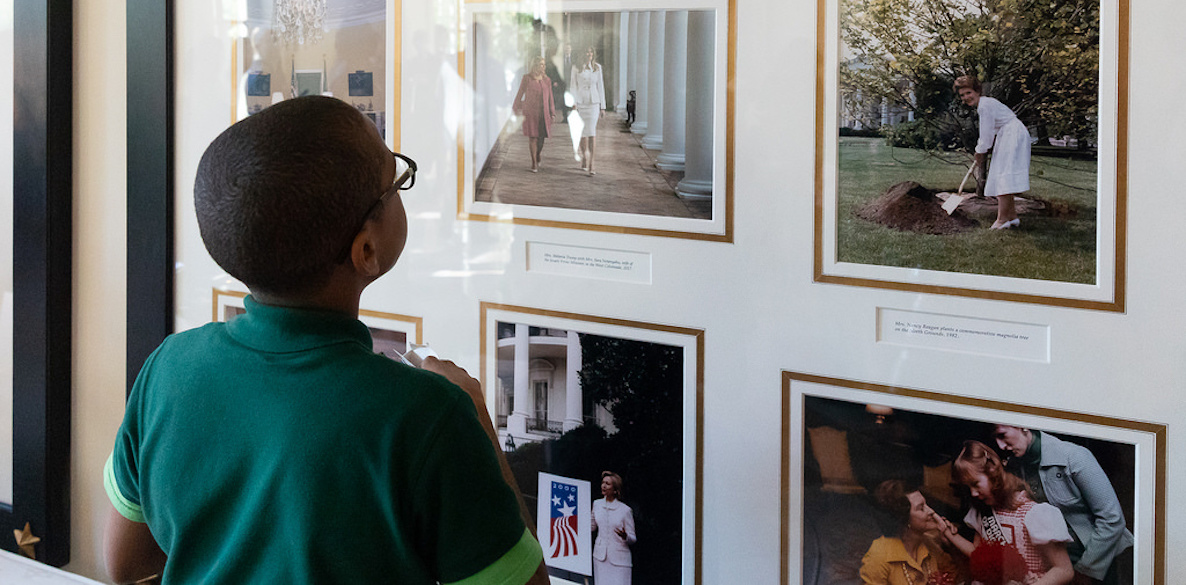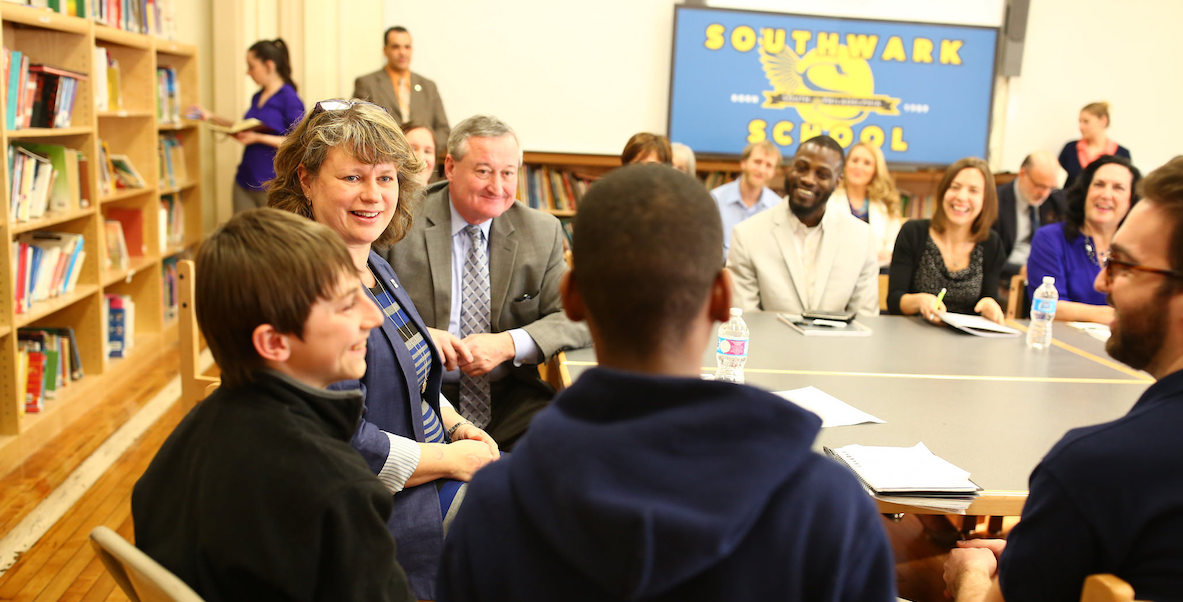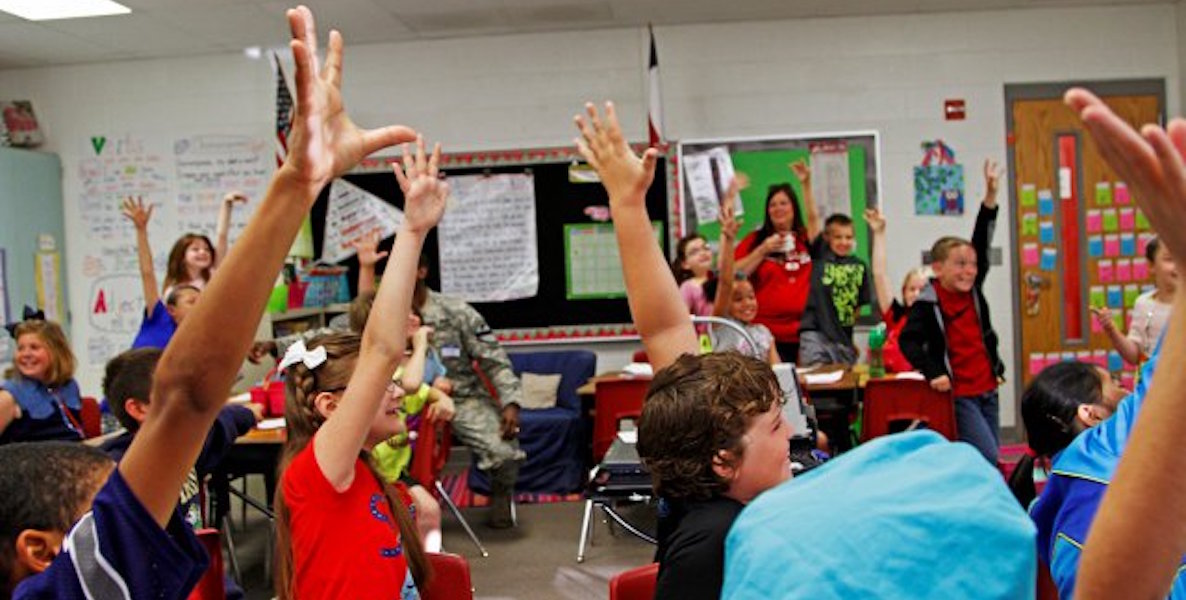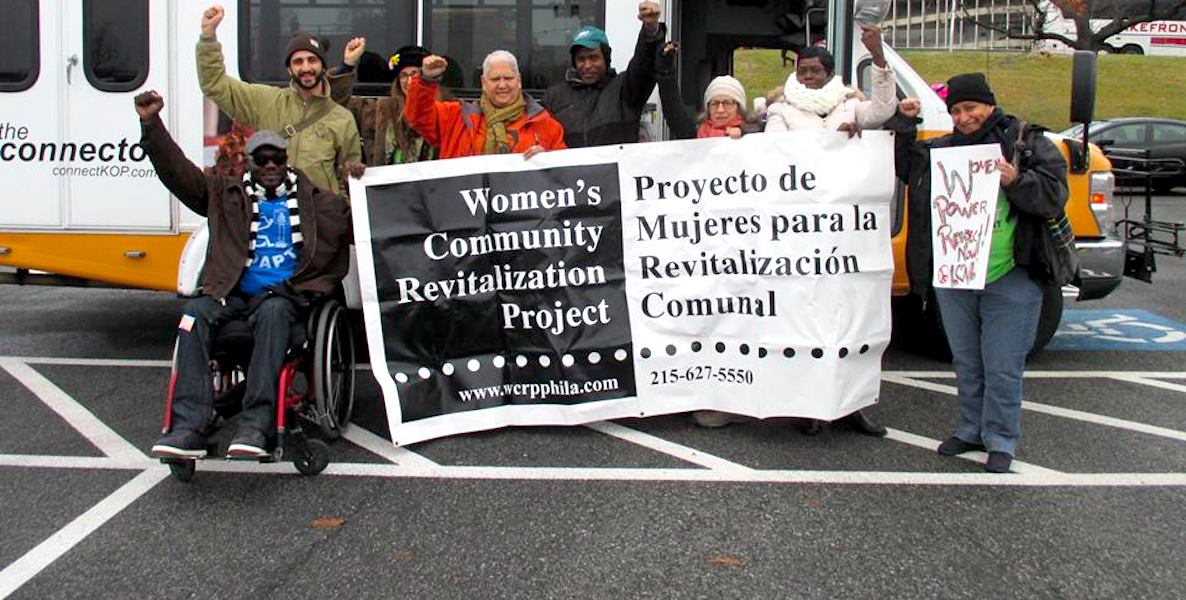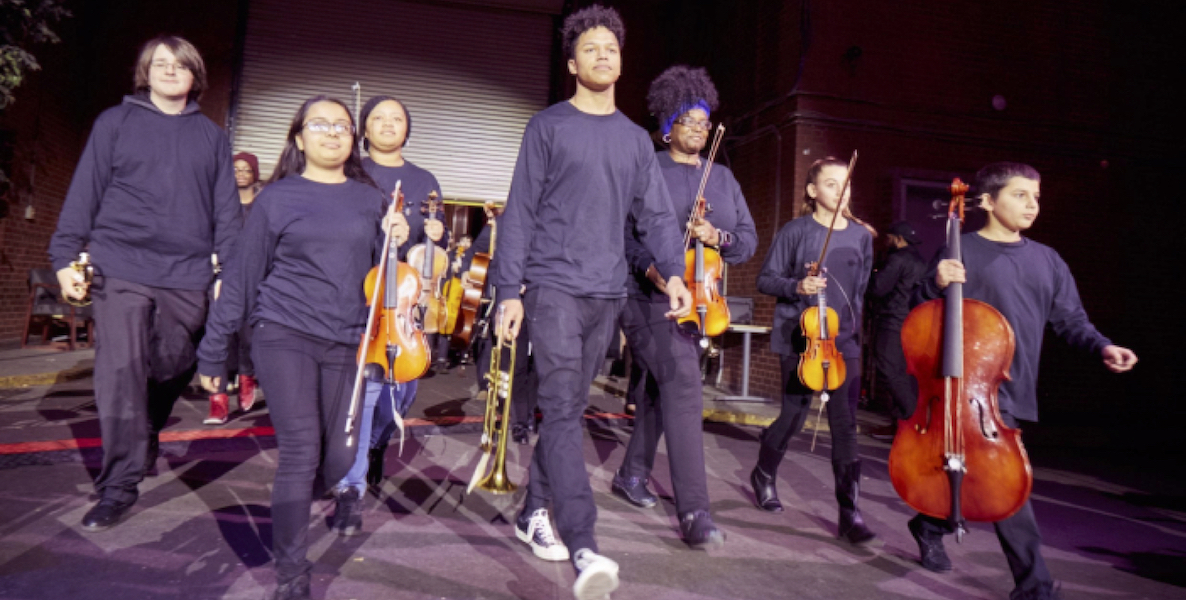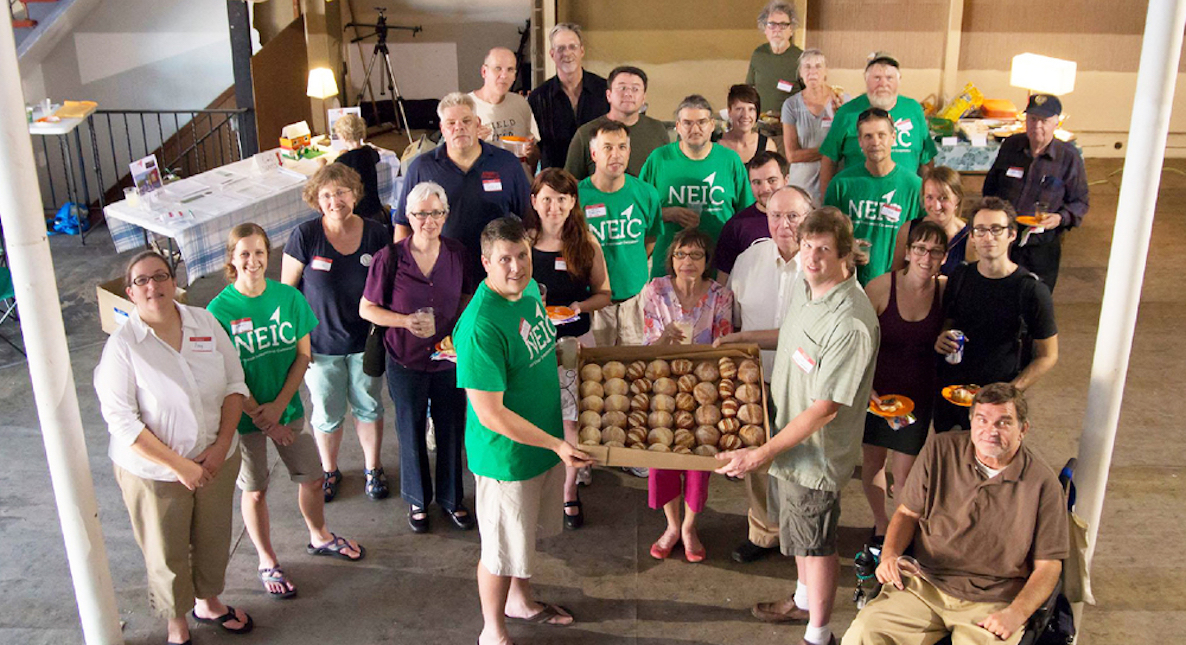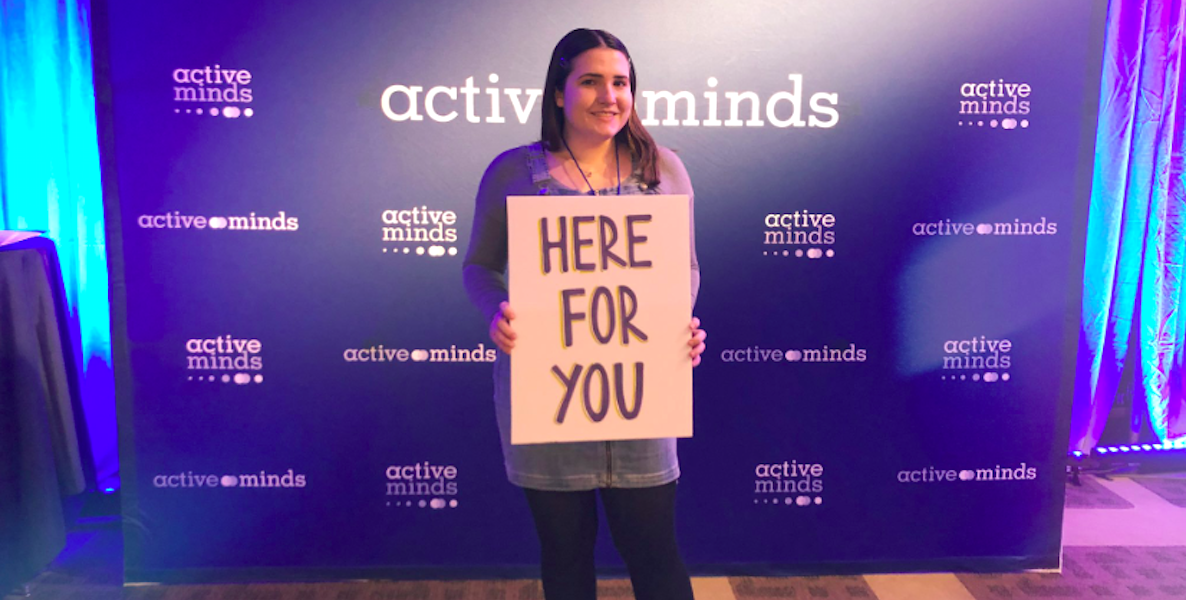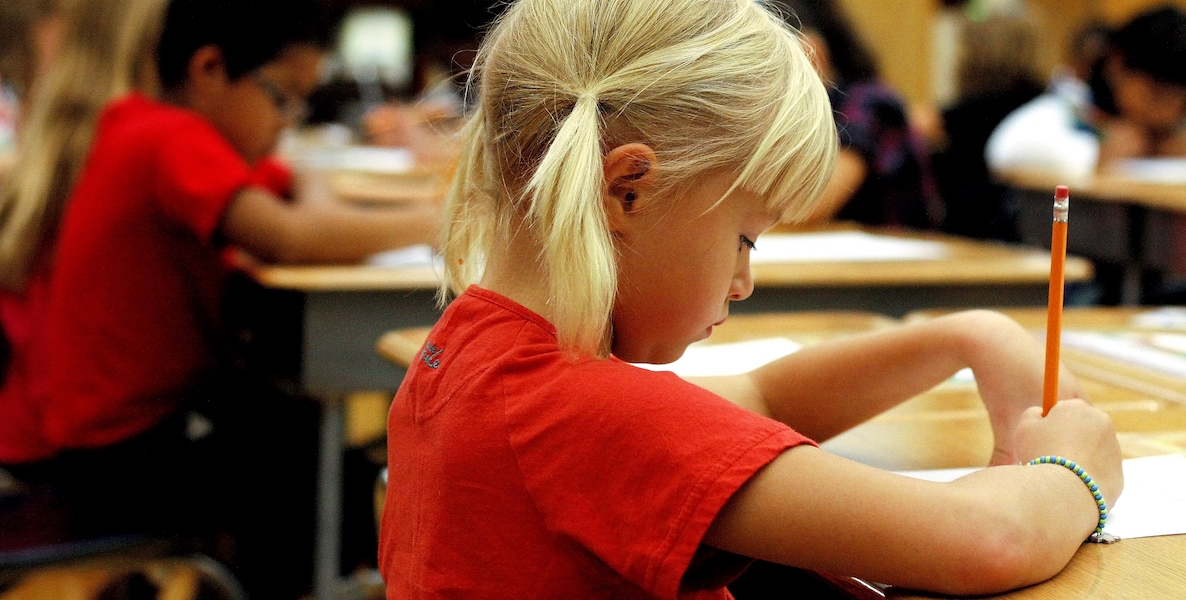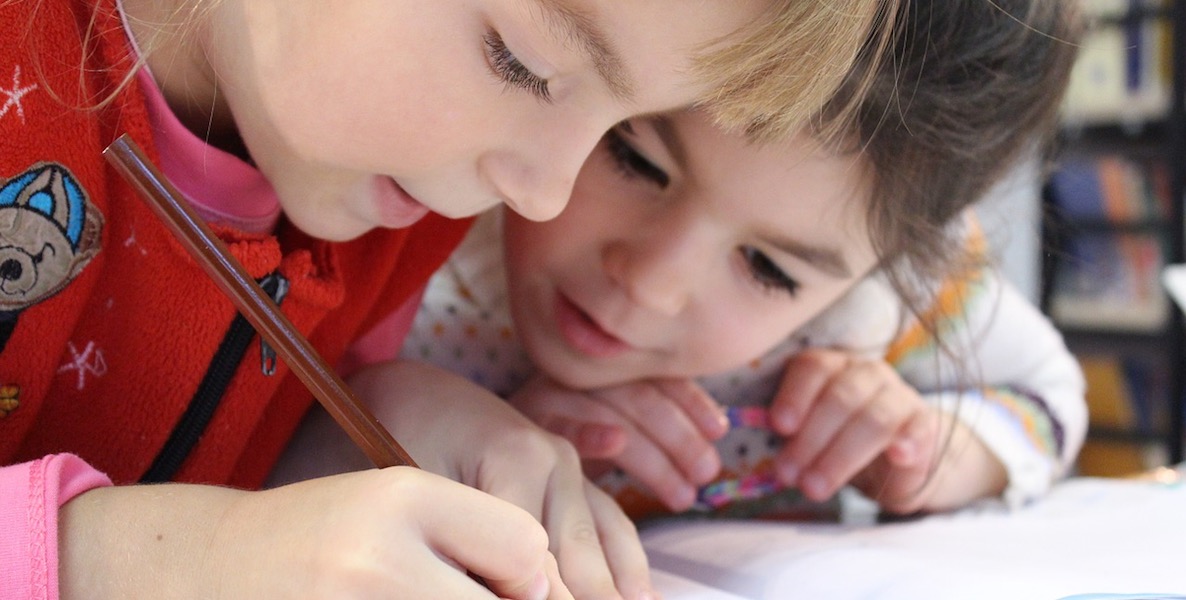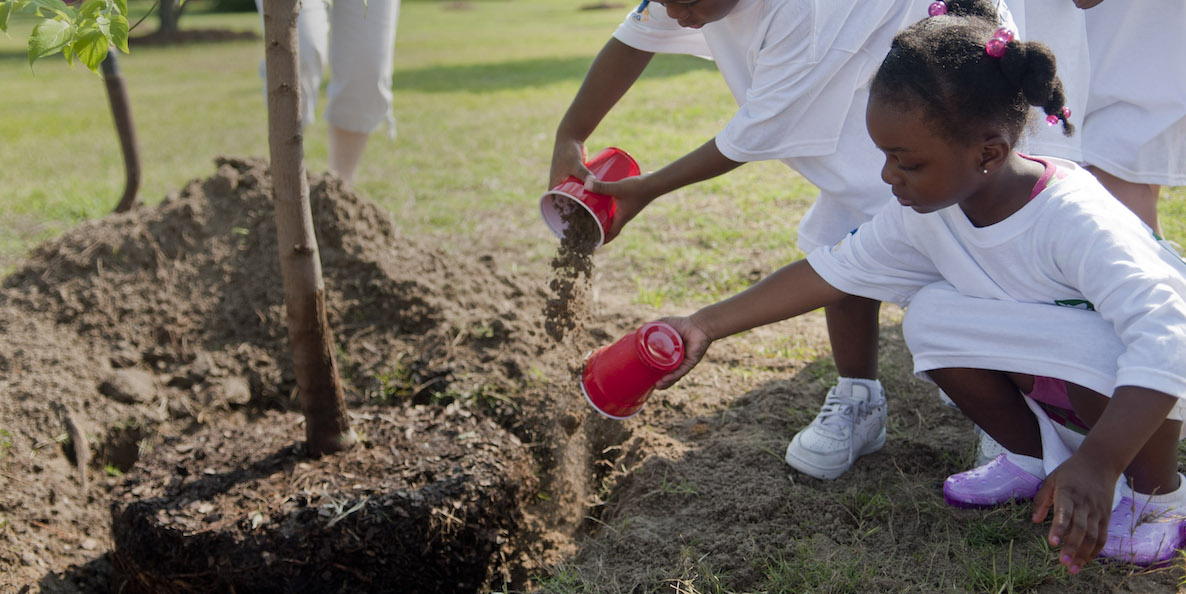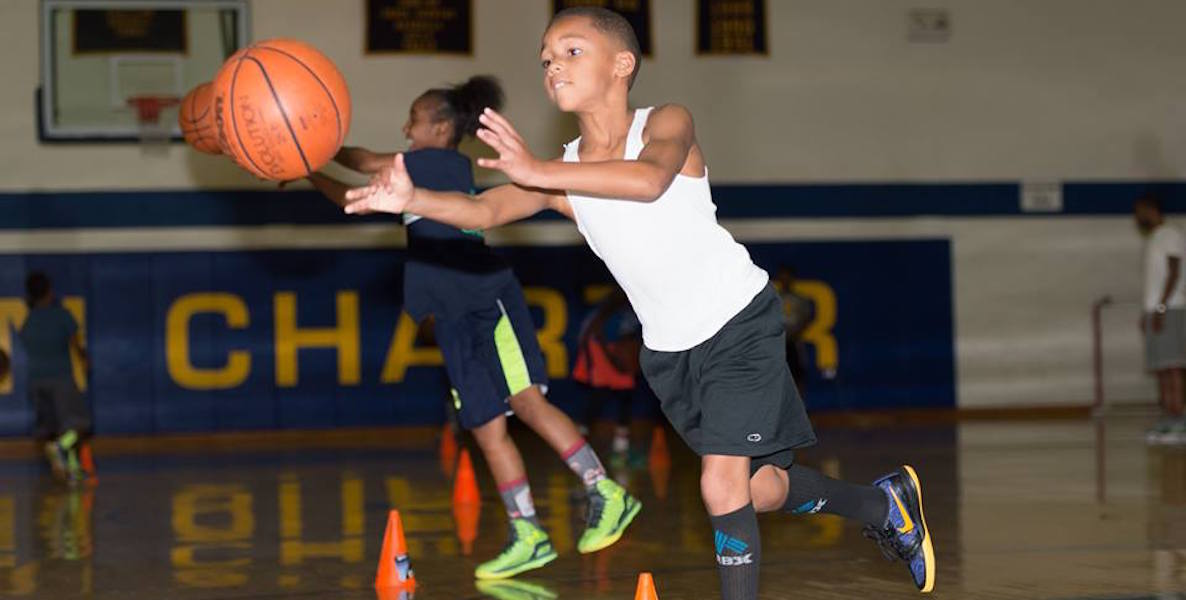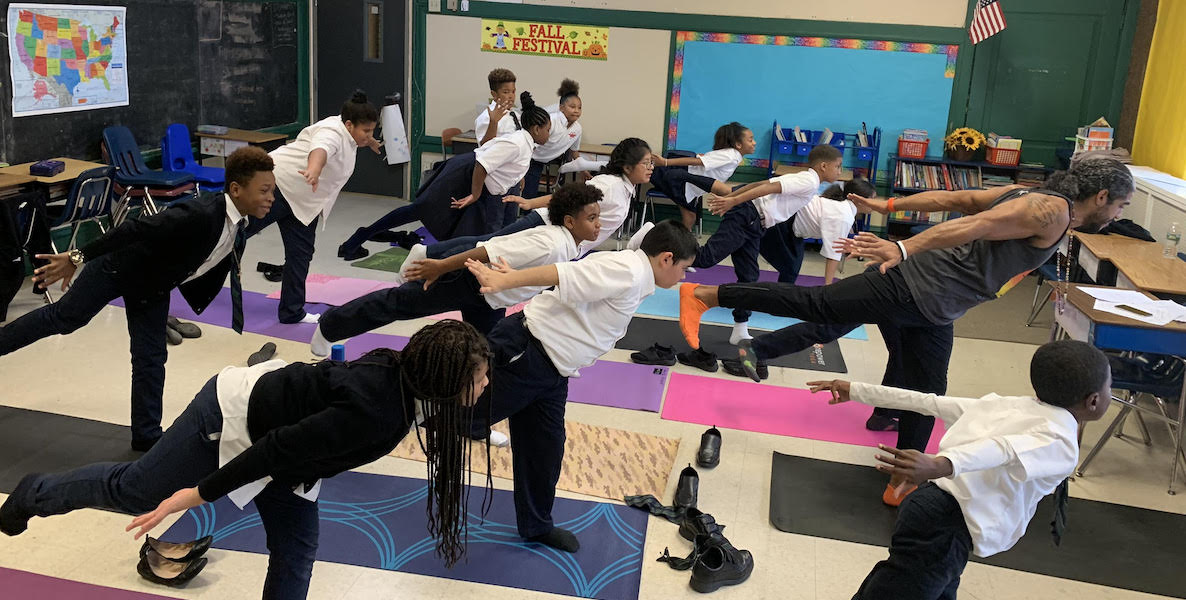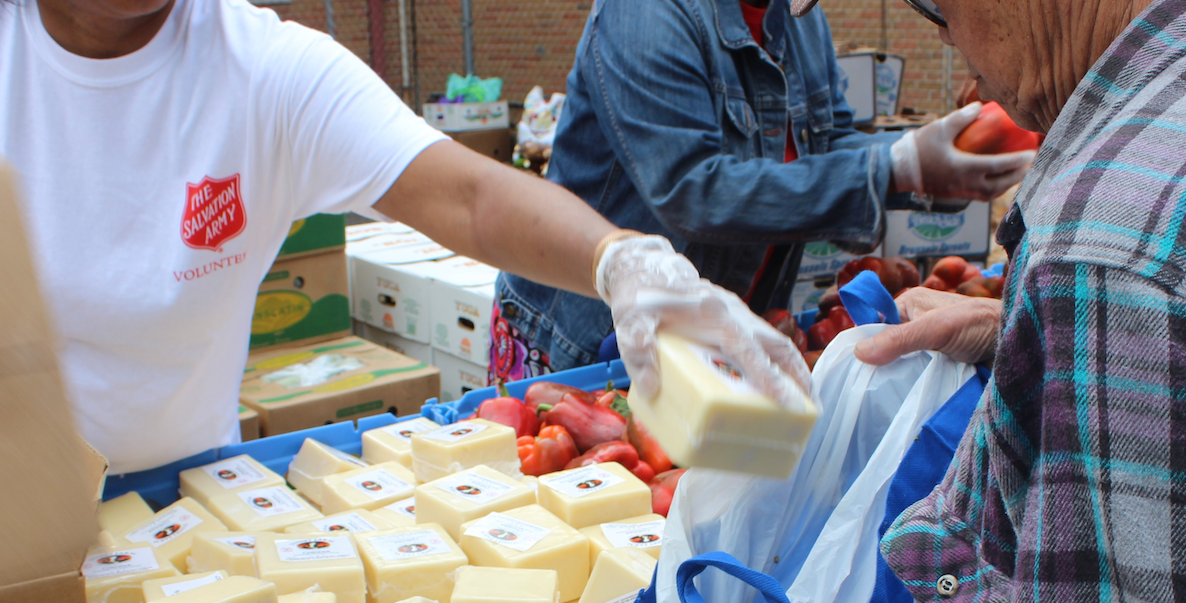Congratulations, guardians of Philadelphia: You and those growing humans you nurture made it through another summer! As students around the region trade their mosquito bites and Minecraft for homeroom and homework today, we asked local experts to share the latest research on what students need most, in and outside of the classroom, to succeed this year.
Here, some of their back to school tips to help all kids prosper:

Prefer the audio version of this story? Listen to this article in CitizenCast below:

1. TEACH EMPATHY
“I think broadening what it means for students to be successful is the most important thing to remember this school year,” says Angela Duckworth, the Penn Professor of Psychology and MacArthur “Genius” Award-winner who’s most well-known as the author of Grit but who, since 2013, has also been leading a team of research scientists at her West Philly-based Character Lab to discover and disseminate ways for educators and parents to build kids’ character: kindness, social intelligence, purpose, and more.
“It’s not that I don’t think report cards and standardized test scores are important—I do—but there is so much more to a kid’s well-being,” Duckworth says. She believes thriving means tending to four needs: academic; social; emotional; and physical—in other words, school, friendship, happiness, and health. Adults, she says, have the task of creating environments that set kids up for that kind of “holistic thriving.”
What you can do: Visit characterlab.org for research-backed tips on how you can help the students in your life thrive in all four spheres. Follow Duckworth’s weekly “Thoughts of the Week” on her blog, and check out C-Lab’s proprietary “Playbooks” to get a deeper look at nurturing character traits like curiosity, gratitude, proactivity, and more.
2. SET THE TONE FOR QUALITY SLEEP
“Lots of studies show that children from grades K through 12 who don’t get enough sleep or have poor quality of sleep are more likely to struggle academically and have emotional and behavioral concerns,” explains sleep expert Ariel Williamson, PhD, a faculty member with appointments in CHOP’s Sleep Center, PolicyLab, and Center for Pediatric Clinical Effectiveness. Sleep-deprived kids, she says, struggle with maintaining attention and are even more likely to consume unhealthy foods. The National Sleep Foundation recommends that kids ages 6-13 get about 9-11 hours of sleep per night, and that teens ages 14-17 log about 8-10. “We know from research studies that even 30 more minutes of sleep can benefit kids’ outcomes,” Williamson explains.
The most crucial, research-backed ways to help kids get enough sleep: Don’t let them have any caffeine, which can be hiding in some root beer, Mountain Dew, and Sunkist; insist on bedtime routines and consistent bedtime and wake-up times for kids of all ages (when teens make up for lost weekday sleep by snoozing til noon on weekends, they’re only derailing weekday schedules even more); and have a family policy wherein everyone avoids electronic devices for at least a half hour before bedtime—screens’ blue light hampers melatonin production, which our bodies need for sleep.
What you can do: Advocate for later school start times, and sleep education, in your district; set sleep routines in your house; and support organizations like Beds for Kids and Pajama Program, to help all children get the sleep supplies they deserve. For more info, see the Sleep Research Society, National Sleep Foundation, and American Academy of Sleep Medicine.
3. GET BACK TO NATURE
You’ve probably heard about the uptick in doctors giving patients “nature prescriptions”—just being outside, says Aaliyah Green Ross, Director of Education at The Schuylkill Center for Environmental Education, can lower blood pressure and stress hormones, reduce rumination, and improve clarity of thought. In that spirit, The Schuylkill Center, which offers year-round programming like school field trips and their recent all-family “Shooting Stars and S’Mores” event, has also been collaborating with CHOP to employ similarly beneficial programming for Philly-area children. Called Nature PHL, the initiative has The Schuylkill Center working with CHOP pediatricians to prescribe time in nature for kids who could benefit from it.
“During a well-child visit, a doctor will assess a child, asking them how much time they’re spending out in nature, and how comfortable they feel outdoors or how much they know about parks in their area,” Green Ross explains. “If the doctor feels it’s necessary, they’ll connect the family with someone called a nature navigator, who’s an employee of The Schuylkill Center, who will follow up after the visit, help identify what barriers are stopping them from getting as much outdoor time as they need, and work with them to figure out where their local parks are and what programs they can join at their local rec center. They’ll connect them with resources and give them the knowledge and motivation they need to spend more time outdoors.”
For now, The Schuylkill Center is working with CHOP clinics in Roxborough and Cobbs Creek, with expansion to more clinics forthcoming, but anyone can access NaturePHL.org, which contains a mapping tool with the only database of all the parks and green spaces in Philly.
What you can do: Donate to The Center, attend its programs, enroll your kids in its camps on the days that school’s not in session, and check out NaturePHL.org to find your local green spaces.
4. NURTURE MENTAL HEALTH
The statistics are alarming: Rates of suicide and depression among children and teens are at an all-time high. The Ardmore-based nonprofit Minding Your Mind wants to change that. “It doesn’t matter how smart you are, how athletic you are or how good you are at anything if you’re not in a good place emotionally, because eventually things will come crashing down if you’re not taking care of yourself,” says Minding Your Mind’s Executive Director Trish Larsen.
The organization works to destigmatize mental health issues with evidence-based programming that sends teens who’ve been diagnosed with a mental health condition into schools to speak to students, starting with classrooms as young as fifth grade. “We talk to kids about their mental health in a gentle way or in a profound way, depending on what we’re invited to do. We help them to understand how unmanaged stress can lead to negative coping, self-destructive behaviors, and severe anxiety and depression,” Larsen explains.
They also do suicide prevention training for teachers and parent education nights. “We’re basically trying to help kids understand how to talk about mental health and how to put words to their feelings from a young age, so that it just becomes a part of their vocabulary and also a comfort, letting them know that there are folks who can help them.”
What you can do: Donate to help keep Minding Your Mind’s programs free for schools. “We never turn people down, and we’re always looking to bring our programs to some of the most underserved schools in our area,” Larsen says.
5. ENCOURAGE PHYSICAL ACTIVITY
No one can argue the countless, proven benefits of getting kids moving: from relieving stress to minimizing obesity to improving sleep. But as anyone who’s ever signed up for a gym membership can attest, finding a physical outlet and sticking to it is the hard part. The West Chester-based Healthy Kids Running Series has come up with a solution: Their five-week, coed running program for kids in pre-k through middle school is designed, as founder Jeff Long—who attended St. Joe’s University on a track scholarship says—“to introduce kids to running in a fun and positive way with the hope of building their self-esteem and instilling in them a get-up-and-go attitude.” Philadelphia has two non-profits with the same mission, located at schools around the city: Students Run Philly Style and Girls on the Run, which focuses on running and empowerment for young girls.
Almost anybody can run, Long says, and the organization is mindful of offering challenger divisions for kids with disabilities. “It’s a great opportunity for kids who maybe aren’t hitting all the homeruns or throwing all the touchdowns. It’s an all-inclusive kind of opportunity for kids to just do their best and be cheered for whatever their best is,” he says. Long’s program is now in 275 towns in 36 states, and CHOP runs a series in West Philly.
What you can do: Go to HealthyKidsRunningSeries.org to find a local race series for your kids; there’s a $35-$40 entry fee, with scholarships available. Also check out Girls on the Run locations, and how to start you own here; and Students Run Philly Style teams, and how to bring one to your school here.
6. PRACTICE MINDFULNESS
A recent study out of the Center for Education Policy Research at Harvard University (CEPR), MIT, and Transforming Education confirmed what anyone can intuit: Mindfulness is a good thing for students. Full stop. But what that research, which focused on a small cohort of students in a short-term mindfulness program, also called for is the need to explore the benefits of longer-term mindfulness program. Philly’s own Gail Silver, a children’s book author and founder of Yoga Child, is one step ahead of Harvard, having created the nonprofit School Mindfulness Project, which strives to create an entire mindfulness ecosystem in schools and the wider community.
The premise: A veritable SWAT team of yoga and mindfulness leaders sweeps into a school, first sharing practices with teachers, then implementing programming throughout an entire school for the duration of the academic year, with ongoing follow-up, allowing for school-wide integration and sustainability. “By the time our first graders are in 9th grade, they can come back into their elementary schools and be mentors or volunteers or eventually employees,” Silver says.
What you can do: With the budget for one year of SMP’s programming topping out between $250,000 and $450,000, all donations are welcome. Also, check out the Philly-based yoga program started Project Little Warriors.
7. PLAY CHESS!
Chess is thought to date back to sixth-century India, and schools worldwide have implemented chess programs for decades. With good reason: Chess builds confidence, teaches respect, gets students thinking about consequences. In the era of screens, it’s a particularly powerful antidote to tech-brain. But what’s unique about the nonprofit Philadelphia Chess Society is its commitment, since 2017, to enabling students throughout Philly to head to tournaments in other neighborhoods and cities—like national tournaments in Ohio and Illinois.
“Most of the kids we work with come from families that cannot afford the full cost of going to these tournaments. And kids need those big trips: You can get a lot of benefits out of chess no matter how you’re playing it—locally, just for fun—but going on the road and seeing new things can be a motivator, can really be transformative” says PCS board member Jason Bui.
What you can do: Donate to Philadelphia Chess Society here. And reach out for details on how you can support chess-playing in your community. PCS would especially love to see more girls playing.
8. PROVIDE MORE ACCESS TO THE ARTS
Of the 10 largest cities in the U.S., Philly has the largest percentage of people with disabilities, and the nonprofit Art-Reach is committed to enabling every single person in the disability community, including our region’s students, to experience the richness of our city’s arts scene. “We believe access to the arts is a human right, and that shouldn’t be denied in any kind of way,” explains Art-Reach’s executive director, John Orr. Art-Reach, he explains, believes in the social model of disabilities: structures and programs can (and should) be designed to increase participation, instead of putting the onus on people to change to fit structures.
Now, with a budget of just around $500,000 a year, the small-but-mighty organization partners with more than 220 arts organizations to adapt their existing programs to make them accessible to all, and they engage more than 200,000 people per year. One of their most popular programs for school-aged children: ACCESS Philly, which ensures that anyone with a PA-issued ACCESS card, can visit any of 36 participating museums and 12 participating theaters with up to three guests, for just $2 per person, with zero blackout dates. As for why Art-Reach programming is so meaningful for students, Orr says it best: “We believe that engagement with the arts is a critical component to growth, learning, and personal fulfillment.”
What you can do: Donate to Art-Reach, and really consider how adopting a new perspective on access—one where organizations make their spaces more accessible to all—could positively impact your organization, employer, and go-to places. Then, speak up to HR and management, accordingly.
9. LISTEN TO MUSIC—AND DANCE!
When, in 1974, professional violist Welthie Fitzgerald founded Musicopia, a nonprofit that provides instruments and music programming to underserved Philly-area students, there wasn’t a ton of quantifiable research on the benefits of music: it was common sense. Now that there are studies confirming the positive impact of music, one can see, with the gift of hindsight, what a visionary Fitzgerald really was. Since 1974, Musicopia (originally dubbed Strings for Schools), now helmed by Fitzgerald’s daughter, Denise Kinney, has helped more than 300,000 children in the Philly region experience the arts and has collected and placed more than 4,000 instruments with students, through its Gift of Music Instrument Donation program. (Other local initiatives, like Temple Contemporary’s Symphony for a Broken Orchestra and LiveConnections are also answering the call to get music and instruments in the hands of students.)
Its sister organization, Dancing Classrooms Philadelphia, has been around since 2007, and brings ballroom dancing to 5th and 8th grade classrooms in the region. Since its founding, the program has served more than 25,000 students in public, charter and parochial schools.
What you can do: Donate to support either or both orgs; volunteer to collect, catalogue, and distribute instruments; attend the groups’ upcoming 2019 High Note High Step Fundraising Breakfast, Thursday, November 14th, 7:30-9:30 a.m. at The Union League of Philadelphia (140 S. Broad Street). RSVP to [email protected]. Business casual attire requested.
10. FILL THEIR TUMMIES WITH GOOD FOOD
“They say breakfast is the most important meal of the day—but in my mind, all meals are the most important,” says Hilary Stiebel, programs managers at Philabundance. “We can’t learn without nutrition, and we can’t keep our minds active and healthy when we don’t have the proper nutrition to keep going.” In Philadelphia, the need for food is so great among the student body of the School District of Philadelphia, that every single student in the District is eligible for free lunch—no burdensome paperwork required.
Philabundance meets the needs of students where they are—in school—with a wide range of school programming, from providing breakfast and after-school snacks, to organizing monthly backpack programs wherein all students in designated schools are eligible and encouraged to bring home five pounds of food for their family, including one pound of fresh produce.
What you can do: Stiebel says that the most meaningful way to support Philabundance’s work in the region is through financial donations—$1 goes further than a piece of donated food, particularly when it comes to supplying fresh produce—and organizations like theirs need citizens to call their local reps to request support for SNAP, The Farm Bill, and Child Nutrition Reauthorization measures that help get students the food they need, and deserve. Donate here, and get advocacy tools here.
RELATED: Looking for more ways to make a difference? Check out our guide to how to help Philly schools.
Photo courtesy Phil Roeder / Flickr

